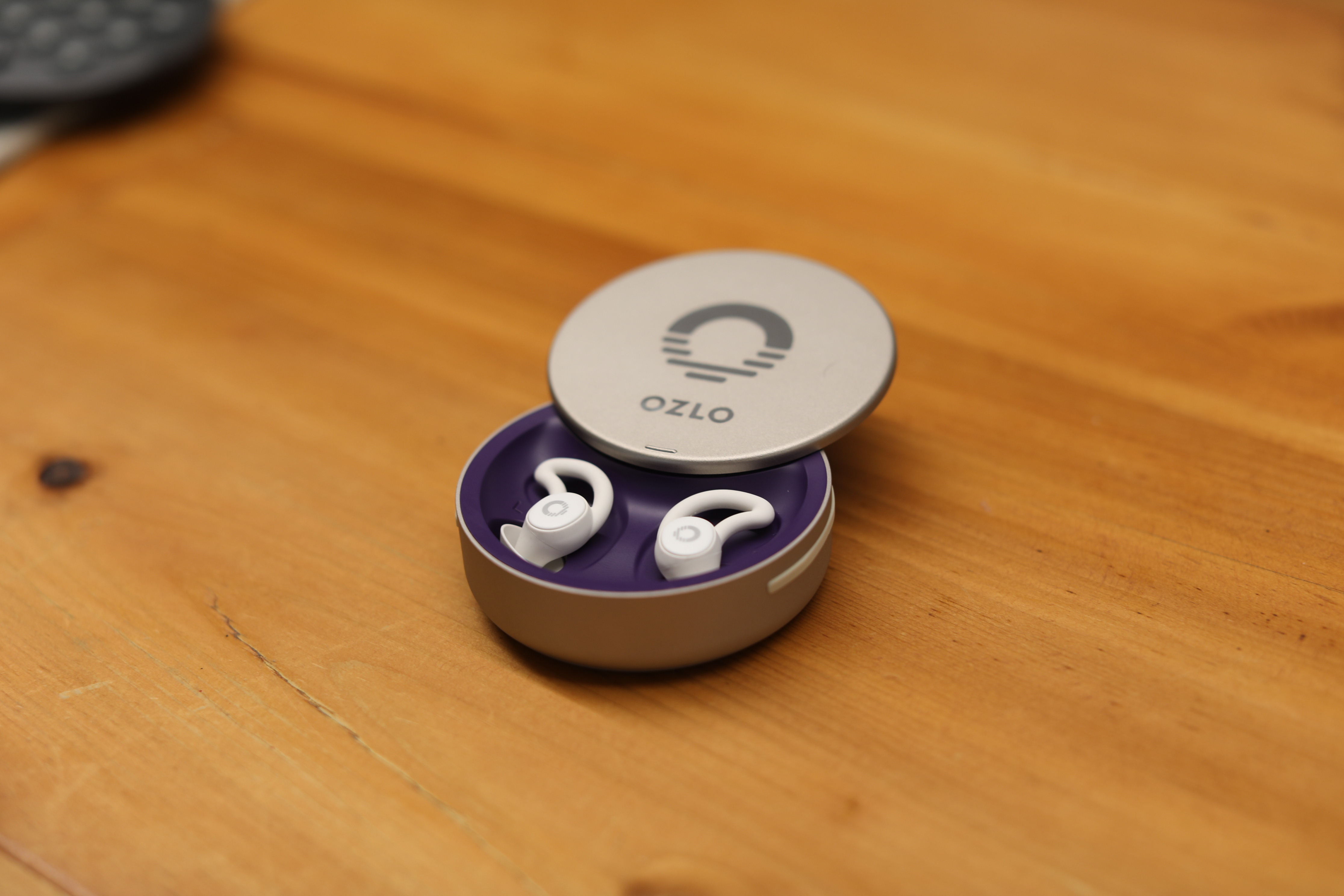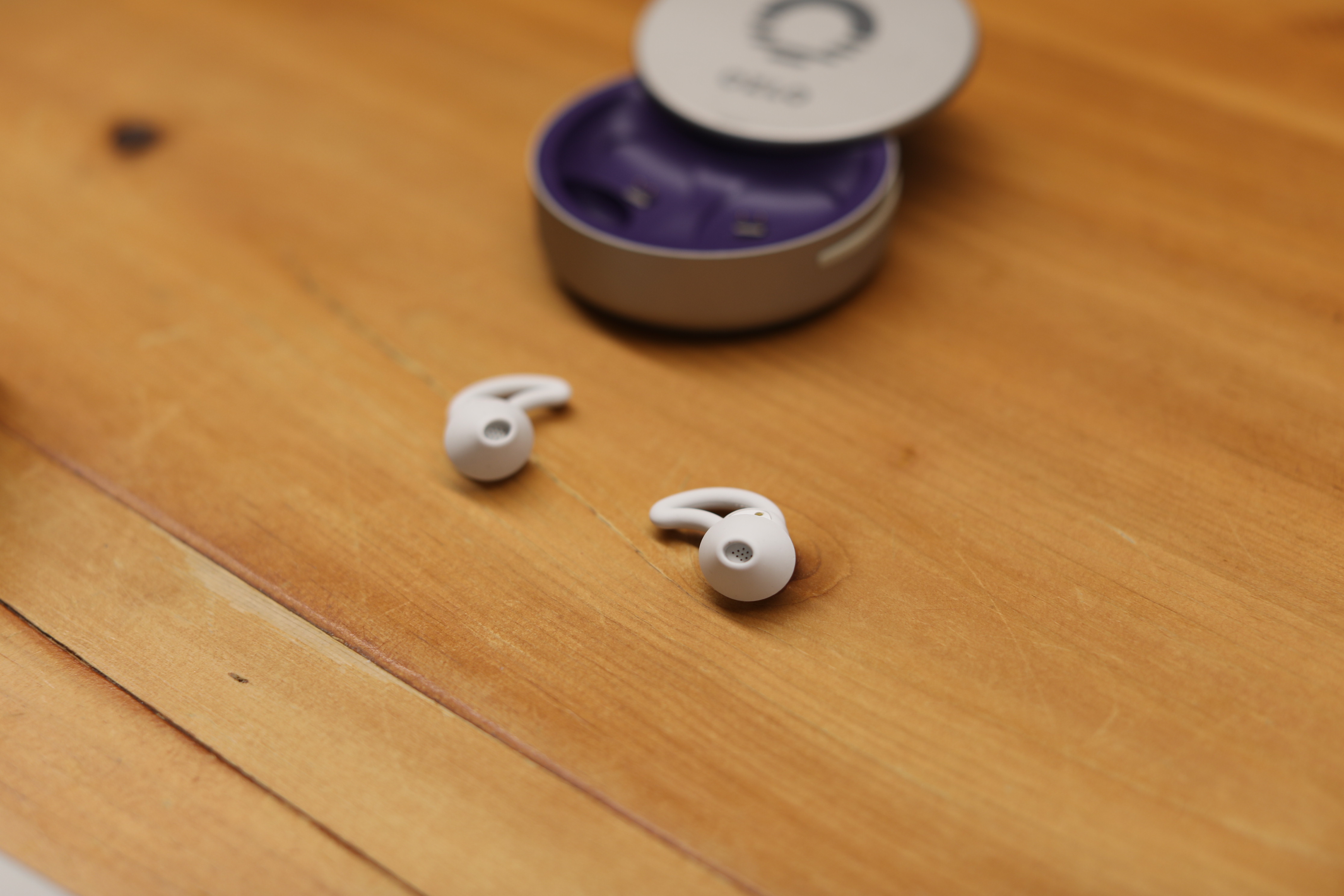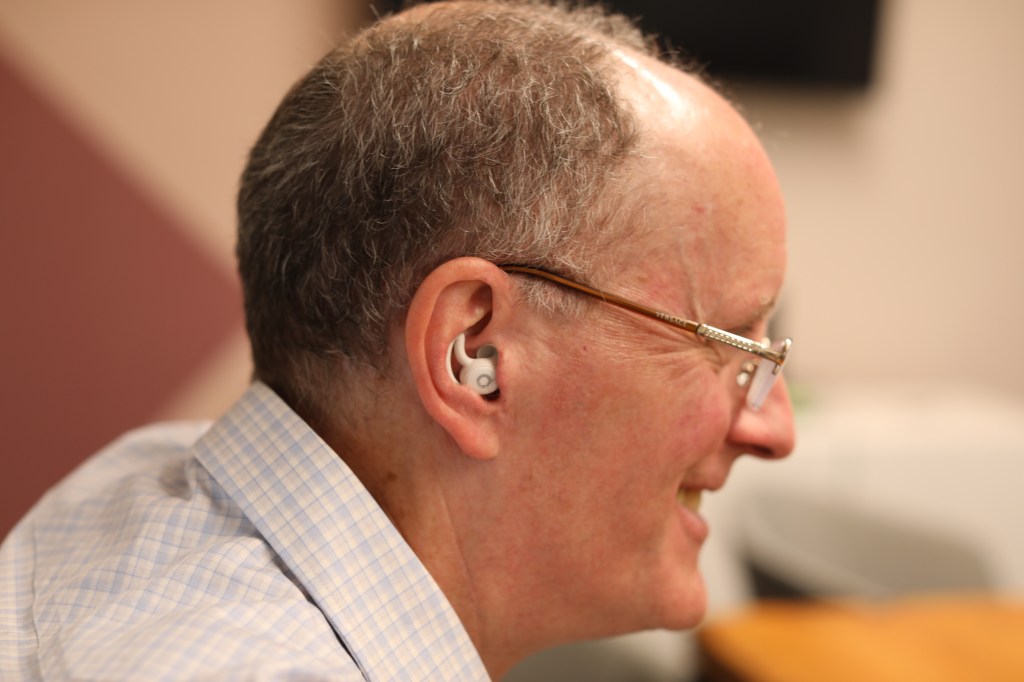I can’t recall a piece of hardware of recent vintage that I wanted to like more than Bose Sleepbuds. That made them all the more frustrating. In recent years, I’ve been on a kind of mini-quest to find a suitable pair of sleeping headphones. As a terrible sleeper, I love the idea, but the reality has thus far fallen short. Ultimately, however, no pair has come as close as Bose.
The form factor was great. They fit comfortably. When I do manage to fall asleep, I generally do so on my side. The buds are small enough to lie flush and not cause any pressure between your ear and pillow. The sound quality was perfectly fine, too — certainly quality enough to get a good night’s sleep.
But there was always one glaring issue: no streaming. It feels like a glaring shortcoming. Making matters worse was Bose marketing’s insistence that you’d never need more than the preloaded soundscapes that shipped with the buds. Babbling brooks are all well and good, but falling asleep to a little Alice Coltrane is more my speed. Ultimately, the whole exercise left me wondering how much of the company line was an accurate assessment of Bose’s feelings on the subject and how much was a way to avoid addressing the fact that the technology just wasn’t there.
After all, the Sleepbuds’ defining characteristic is their size. It’s all a compromise. Adding a Bluetooth radio, for instance, could mean making the battery smaller, and most people likely demand a charge that will get them through the night. One thing is clear, however. I wasn’t alone in my thinking. Other product reviewers reflected the sentiment — as did customer reviews.
Bose’s canned support response to the latter is as follows:
The sleepbuds play specially curated relaxation content which is downloaded locally to the sleepbuds. This dramatically extends the audio playback and battery time achievable in this tiny form factor. This does mean the sleepbuds will not stream your own music, audio books or podcasts.
We do have other earbuds available which allow streaming your own media.
It seems likely that the world will never see the platonic ideal Bose Sleepbuds. That particular dream appears to have died off. I will say this for the company, however: Bose isn’t locking up its IP to gather cobwebs in some trademark lawyer’s filing cabinet. In an all too uncommon turn of events, the headphone maker sold Sleepbuds to a trio of former employees for an undisclosed sum.
Ozlo’s founders come from Bose. CEO N.B. Patil was with the company for 23 years, ending his tenure as the senior director of emerging business. COO Brian Mulcahey spent nearly 20 years at the company, culminating his time as managing director, Bose Development. Chief Product Officer Charlie Taylor spent three years at the company, and was the last to leave in April 2022 — not coincidentally the same month Ozlo was founded.

They tell TechCrunch that the company was founded prior to securing the IP from Bose. It was a gamble, certainly. Were their former employer not to agree to sell, they would have been forced to re-engineer sleeping buds from scratch — presumably with significant enough differences to not rankle litigious backlash. Once the deal went through, however, Ozlo had a better story to take to backers. The startup has thus far raised $10.1 million, led by LifeArc Ventures and ARTIS Ventures.
During a meeting last week in Manhattan, the company placed its new hardware on the desk in front of me. Very little has changed at first glance. Ozlo even kept the Sleepbuds name. Hey, if you’re effectively resurrecting a product, you might as well keep the branding, right? Associations with the line are pleasant enough, after all.
The biggest complaints are missing features. There’s the aforementioned streaming one to start. Ozlo adds that biometrics were the other big ask. Certainly, it makes sense to add sleep tracking to Sleepbuds. The forthcoming headphones, which are targeting a pre-holiday release, arrive with both on-board.
When the company first approached me, I asked about the former. When they confirmed it had been added, I immediately took the meeting. I didn’t have sleep tracking on the top of my list, but I understand why others did. After all, that’s one of the big reasons some folks are opting for an Oura ring over an Apple Watch — no one wants to sleep with something around their wrist. Sleepbuds with that capability could prove even less invasive for many.
Ozlo won’t tell me what sensors are on-board, just that they detect motion and don’t require direct contact with the ear. Deductive reasoning tells me that we’re looking at a gyroscope and/or accelerometer here. The product can determine sleep cycles through user moment and respiratory detection. There’s no pulse detection on-board, however. Likely such an optical sensor would require contact with the ear. There’s also the issue of space.

One of the cleverest bits here is the inclusion of sensors on the charging case — namely light and temperature. The idea is to sync your sleep patterns with environmental data to see how your surroundings impact you. All that information is aggregated into a proprietary app. The company will also offer up an API for integration with Apple, Google and other health apps. The company plans to also open access to content developers — meditation apps seem like a no-brainer here.
Pre-loaded sounds are still a thing. You can select one of 10 from a list that includes things like running water and white noise (it’s actually brown noise, I was informed, but South Park may have killed that term forever). There’s only enough storage room on-board for the one. That also means you can’t store audio — like, say, an audiobook — locally. You’ll want to download things to your phone ahead of a long flight.
Active noise canceling is also on the list of potential future features, but the current iteration instead relies on passive canceling (through the seal formed by the silicon add-on) and “sound masking,” which is pretty much what it sounds like. The Sleepbuds utilize a hearing aid battery, which the company says should give you around 10 hours on a charge. The case, meanwhile, contains four full charges — great numbers, if true.
The footprint is almost imperceptibly thicker that the Bose versions — likely owing to the additional functionality. The silicone wing tips are also a little different, but otherwise the headphones are largely unchanged. As for the name, the company tells me it’s a reference to the city of slightly different spelling and the northern lights. When I pointed out that Oslo is a bit too far south to see the phenomenon, they corrected me — apparently you can get a view every so often. I guess Tromsø doesn’t have the same ring to it.
The headphones will be made available through Kickstarter at launch. Ozlo says this is less a funding thing and more about community outreach. It does have $10.1 million in its coffers and apparently isn’t looking to fundraise again any time soon. They’ll be available to preorder for $249 and will bump up another $50 at launch. They’re still quite expensive, but seem more fully realized this time out.































Comment